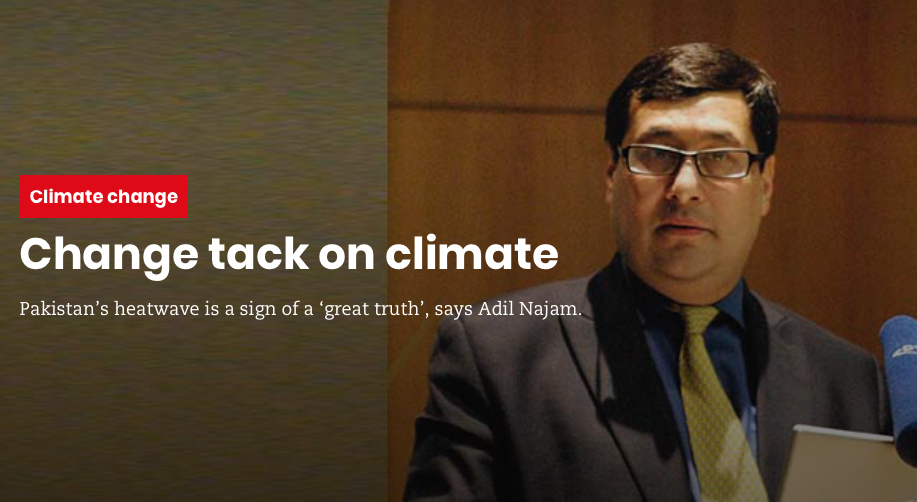Najam Interviewed on Science in the Age of Adaptation
One of the great truths of our times, says Dean Adil Najam of the Pardee School of Global Studies at Boston University, is that “the age of adaptation is here.” That, he says, means that “we have to look at [climate] policy, and maybe even science, differently.” Najam said this in a feature interview published on 18 June 2018, in SciDev.Net, a leading online portal on science and technology for global development.
The interview focused on the science and policy implications of what Najam calls the ‘age of adaptation.’ A key point made by Najam is that although well-meaning, the climate research community – which remains fiercely carbon-centric – has been resistant to giving due importance to development.
“Our mindset, especially our science mindset in climate, is very carbon-centric: climate change is essentially carbon management. What the age of adaptation says is that a lot of what needs to be done is not about carbon at all — it is predominantly about water. Entire generations of very good, very well-meaning people, whose training has entirely been in carbon management, then start resisting that.”
Some excerpts from the full interview which can be read in full, here.
“Traditional climate research has been wonderful — it’s been one of the great successes of the last 20-30 years. But its model has been, scientists from all across the world converge, build these large models, put their knowledge together, and understand these large systems — because that was the nature of the problem. I think what we now need to do is learn from development research, because [it] has always been about the more local. [It] knows a few things about how to take those local results and start packaging them into national and regional policies.
…in mitigation research, our goal was always to move global policy… In adaptation, we have to focus on national, local, regional policy from the beginning. Because you won’t get a global agreement on adaptation that works for the fisherfolk in the Sundurband in Bangladesh and the villager in the Thar desert in Pakistan.”
Adil Najam is the inaugural dean of the Pardee School and a professor of international relations and also of earth and environment at Boston University. He was a co-author for the Third and Fourth Assessments of the Intergovernmental Panel on Climate Change (IPCC); work for which the scientific panel was awarded the 2007 Nobel Peace Prize for advancing the public understanding of climate change science.
